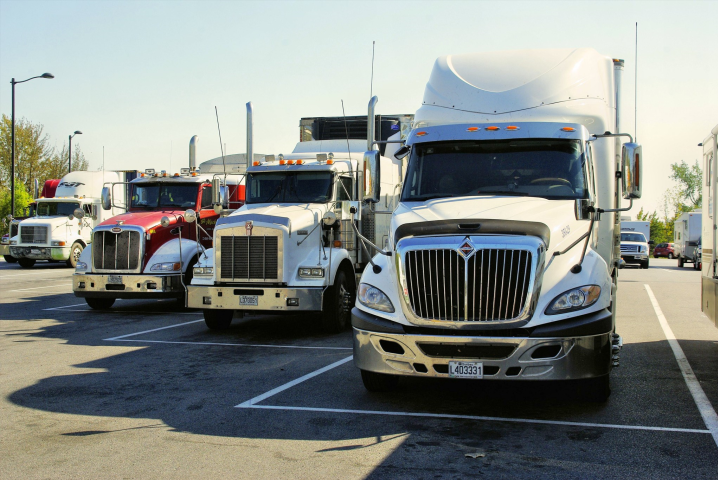National Coalition on Truck Parking: State, Regional, Local Government Coordination Group - The Importance of Considering Truck Parking in Local Planning and Zoning
Printable Version [PDF 203KB]
You may need the Adobe® Reader® to view the PDFs on this page.
Contact Information: Freight Feedback at FreightFeedback@dot.gov

U.S. Department of Transportation
Federal Highway Administration
Office of Operations
1200 New Jersey Avenue, SE
Washington, DC 20590

Local government needs to consider truck parking as part of community planning and local zoning and development codes.

Why Local Communities Should Make It a Priority
If a community has retail establishments, manufacturing, or other industry, trucks will be necessary to support these businesses. Proactively considering truck parking in plans for community development will help reduce illegal truck parking as well as address a number of concerns:
Safety: It is imperative that truck drivers have safe places to park to meet hours of service rest requirements. When parking is not available, truck drivers are forced to park in unsafe locations, such as along roads. This creates safety hazards for other motorists, obstructs vehicle and bicycle lanes, or blocks sight lines at intersections and driveways.
Commerce: People are increasingly reliant on goods being shipped from other parts of the country or world. Local businesses rely on supplies and goods to serve their customers. Having truck parking in development codes ensures that the community can manage how truck parking and staging is occurring in the community.

Traffic Congestion: The extra time drivers spend looking for parking can add to the congestion levels on local roads, increasing delays for others. Looking for parking can also force drivers to drive through residential zones which can be unsafe as well as a nuisance for local residents. Truck drivers looking for parking tend to drive longer, burning more fuel, which can negatively impact air quality.
Planning for the Future: Freight access to communities will only get more important as time goes on. Planning for truck parking now will help be proactive in addressing the parking problem and ensures your community can be a competitive and desirable place for industry in the future.
Similar to the employee and customer parking requirements contained in most zoning ordinances, truck parking requirements can be implemented for uses that frequently generate truck traffic. Having provisions for truck parking in the zoning ordinance also allows the community to set standards for siting and design to ensure compatibility with surrounding land uses.
Truck parking needs are different in urban and rural communities, industrial or residential zones, and many other types of areas. It is important to plan accordingly to ensure siting is compatible with surrounding land uses.
Jason's Law
Jason's Law is named in honor of Jason Rivenburg. On March 4, 2009, Jason stopped for a delivery in Virginia and then headed toward a delivery destination in South Carolina. While only 12 miles from the delivery location, he needed to find parking to rest through the night as he was not permitted to park at his delivery location. Jason had learned from truckers familiar with the area that a nearby abandoned gas station was a safe location to park and proceeded to park there for the night. Tragically, he was attacked and murdered while he slept in his truck, with the killer taking both his life and just $7.00 that he had in his wallet.1
To honor Jason's memory, his wife worked to bring attention to the national truck parking shortage problem. The law, passed by Congress in 2012, included a national truck parking survey and assessment, and expansion of Federal funding eligibility for truck parking.
Why is truck parking important?
Trucks play a vital role in our economy. They are essential for delivering supplies to manufacturing and delivering products to our retail establishments. With trucks; comes the need for truck parking.
Truck parking shortages are a national safety concern. Lack of truck parking supply can lead to fatigued truck drivers on the road and force them to park at unsafe locations, such as on the shoulder of the road, exit ramps, or vacant lots, if they are unable to locate official, available parking.
In the 2012 transportation authorization, Congress enacted "Jason's law" in their push for better truck parking measures.
Additionally, the Federal Motor Carrier Safety Administration Hours of Service rule requires that drivers of commercial motor vehicles be on the road for only a certain amount of time. This creates challenges with finding parking at the right time and place.
About
The U.S. Department of Transportation and several stakeholder organizations established the National Coalition on Truck Parking in August 2015 as a response to a documented need for truck parking solutions.
To learn more about the National Coalition on Truck Parking and other truck parking solutions, please visit the Federal Highway Administration's Office of Freight Management and Operations at: https://ops.fhwa.dot.gov/Freight/infrastructure/truck_parking/index.htm.
FHWA-HOP-18-2018
The examples in this report show innovative solutions for truck parking applied in a range of situations. Suitability in other locations will depend on applicable Federal laws, State standards, and site-specific considerations. This document is disseminated under the sponsorship of the U.S. Department of Transportation in the interest of information exchange. The U.S. Government assumes no liability for the use of the information contained in this document. This report does not constitute a standard, specification, or regulation. It does not create any requirements other than those stipulated in statute or regulation.